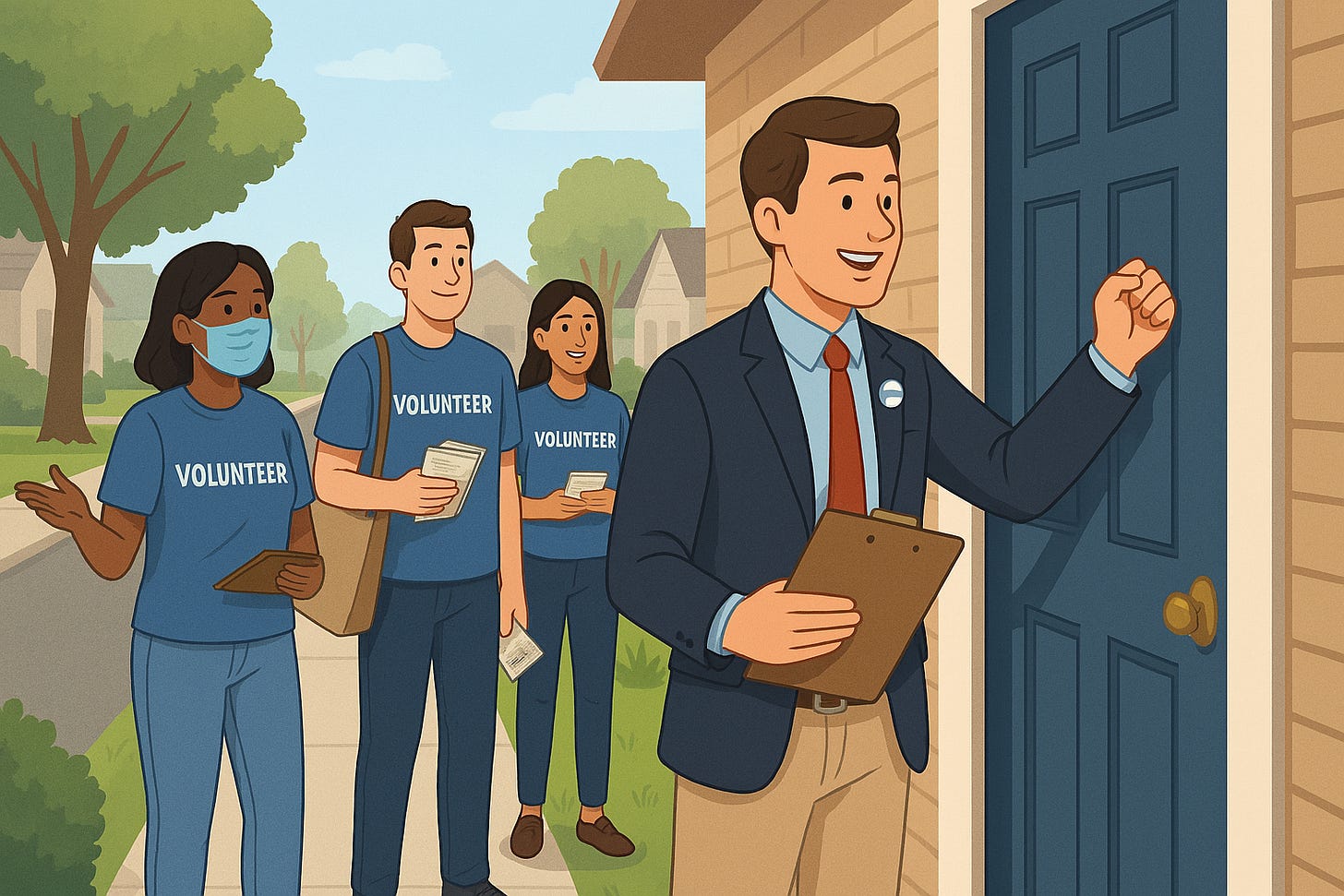Volunteering for an election candidate is one of the most powerful ways to engage with the political process, make a tangible impact on your community, and develop invaluable skills. Whether you're new to politics or a seasoned activist looking to get more involved, this comprehensive guide will walk you through everything you need to know about volunteering for an election candidate.
Why Volunteer for an Election Candidate?
Volunteering for a campaign does more than support a candidate—it helps shape public policy, builds community connections, and strengthens the democratic process. Your involvement is an essential part of a collective effort that brings about lasting change. Plus, the skills you develop—from leadership to communication—are valuable in all aspects of life.
Getting Started: What You Need to Know
Research and Understand the Candidate
Learn About the Platform: Familiarize yourself with the candidate’s values, policy positions, and campaign promises.
Study the Campaign Structure: Check out any volunteer handbooks or orientation materials available on the candidate's official website to understand the campaign’s goals and organization.
Sign Up and Commit
Register as a Volunteer: Visit the candidate's campaign page or local campaign office to sign up.
Attend Training Sessions: Most campaigns offer orientation and training workshops that cover volunteer roles and best practices. Your willingness to learn is your biggest asset.
Key Volunteer Roles and How You Can Help
Campaigns rely on a variety of roles to succeed. Here’s an overview of common volunteer opportunities:
1. Canvassing (Door-to-Door Outreach)
Purpose and Focus:
The primary goal of canvassing is to identify likely voters for Get Out The Vote (GOTV) efforts rather than persuade on the spot.
Focus on confirming voter preferences with a positive, memorable interaction before moving efficiently on to the next door.
Best Practices:
Prepare by reviewing your voter list and local maps.
Stick to the campaign-provided script for consistency.
Dress appropriately, prioritize personal safety, and be ready for different weather conditions.
Communication Tip: Keep conversations short, gentle, and supportive to leave a lasting positive impression on voters.
2. Phone Banking
What It Involves:
Calling potential voters to share the candidate’s message.
Using a scripted dialogue to guide conversations, answer questions, and document feedback.
Best Practices:
Set up in a quiet environment free from distractions.
Practice active listening and keep detailed records.
Maintain a friendly, supportive tone during calls.
3. Digital Advocacy and Social Media
What It Involves:
Managing and contributing to the candidate’s online presence.
Creating content, sharing updates, and engaging with supporters.
Best Practices:
Use official campaign hashtags and media assets to ensure consistency.
Stay up-to-date with campaign news and deadlines.
Respond quickly and courteously to online inquiries.
4. Event Organization and Support
What It Involves:
Assisting with planning and executing campaign events like rallies, town halls, or meet-and-greets.
Coordinating logistics, managing registration, and supporting on-site operations.
Best Practices:
Be proactive and flexible in volunteer meetings.
Offer creative ideas and help wherever needed.
Use clear, concise communication with fellow volunteers and event organizers.
5. Administrative and Operational Support
What It Involves:
Handling data entry, scheduling, and managing volunteer databases.
Assisting with behind-the-scenes logistical operations at campaign headquarters.
Best Practices:
Stay organized and detail-oriented.
Familiarize yourself with any campaign-specific software.
Communicate effectively with campaign coordinators.
6. Fundraising and Donor Outreach
What It Involves:
Organizing or supporting fundraising events.
Contacting potential donors, scheduling meetings, and tracking contributions.
Best Practices:
Understand the legal and ethical guidelines for campaign donations.
Develop strong communication skills to articulate the candidate’s vision.
Maintain follow-up with donors to build lasting relationships.
Communication Best Practices
Across all volunteer roles, effective communication is key. Here are some universal tips:
Keep It Short and Sweet: Whether you're speaking with voters, fellow volunteers, or campaign staff, clarity and brevity are crucial.
Tone Matters: Always use a gentle, supportive tone. This fosters positivity, builds trust, and ensures interactions are constructive and memorable.
Be Respectful: Treat every exchange as an opportunity to build relationships—even brief interactions can leave a lasting impression.
Additional Considerations
Commitment and Flexibility
Volunteer roles can vary in time commitment—from just a few hours a week to involvement in full-day events. Be honest about your availability and remain flexible as roles evolve over the course of the campaign.
Training and Support
Most campaigns offer comprehensive training for volunteers. Don’t hesitate to ask questions or request additional guidance. The more confident you feel, the more effective your contribution will be.
Building a Network
Volunteering is an excellent opportunity to connect with like-minded individuals, expand your professional network, and gain hands-on experience in grassroots campaigning.
Final Thoughts: Your Role in Shaping the Future
Volunteering for an election candidate isn’t just about supporting a political campaign—it’s about shaping the future. Every action you take, no matter how small, is a vital part of the democratic process. By stepping up to volunteer, you’re not only supporting a candidate but also standing up for your values and beliefs.
If you’re ready to take action, contact your local campaign office, join a volunteer training session, and get involved. Remember, change begins at the grassroots, and the world rewards those who show up and engage. The road may be challenging, but remember that each action helps build a stronger, more engaged community.
If you’re ready to take the plunge, check with your candidate's campaign team for the next available volunteer session, and get involved!
By stepping forward to volunteer, you're not just supporting a candidate—you’re contributing to shaping a future that reflects the values and vision we all believe in.
Welcome to the team, and thank you for taking this crucial step to make your voice heard.













